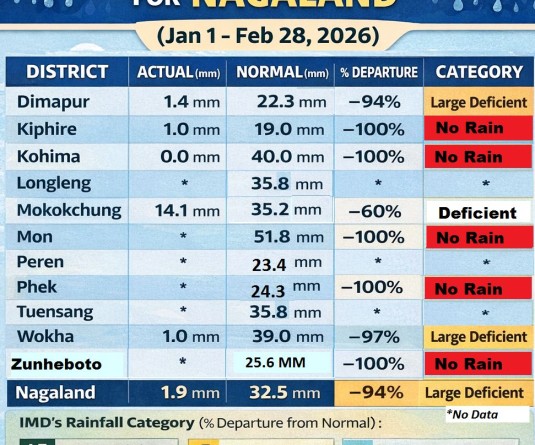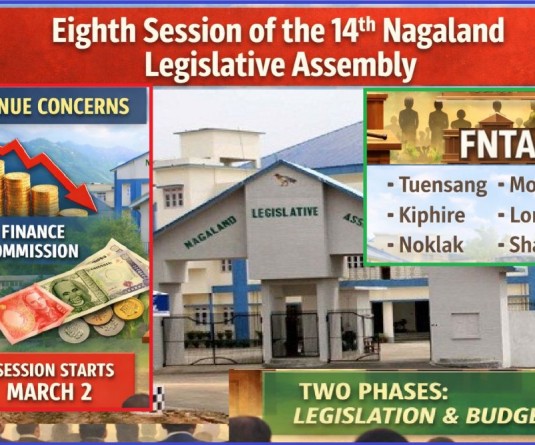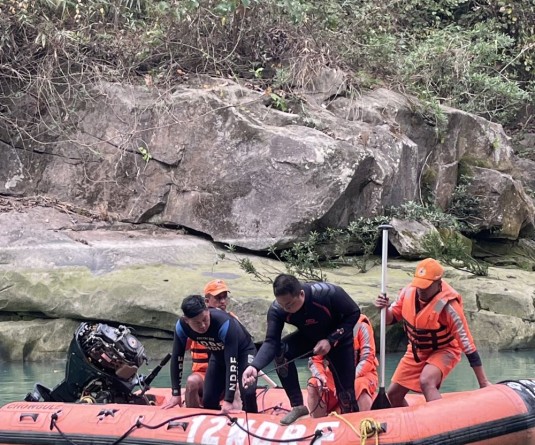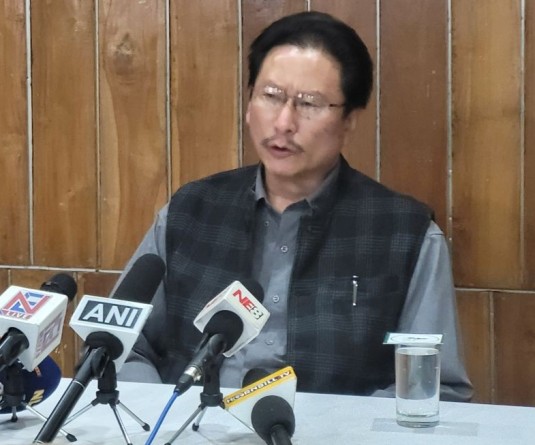Deputy Ato Kilonser of the NSCN (IM), VS Atem on April 21.
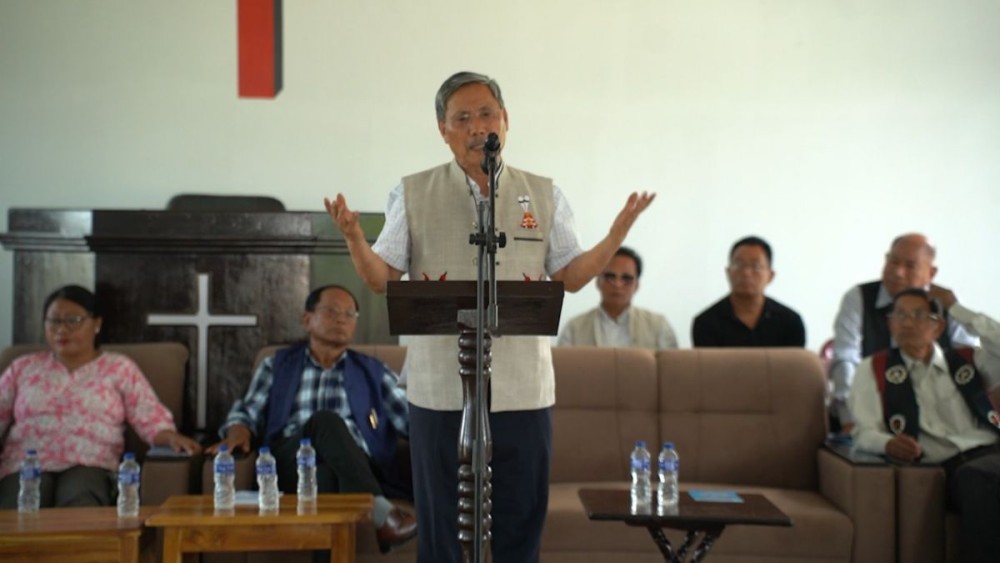
Refutes collusion allegation
Morung Express News
Dimapur | April 21
Deputy Ato Kilonser of the NSCN (IM) said that Ikato Chishi Swu calling it quits would not have a bearing on the group’s existing structure. “It will not affect us,” was the reply from Lt Gen (retd) VS Atem when asked how the departure of Ikato, son of the late Isak Chishi Swu, would affect the NSCN (IM).
Atem made the comment on the sideline of a ‘Consultative Meeting’ with Aghunaqa area frontal organisations led by village chiefs, at Nguvihe village, Niuland district, on April 21. Vice President, Tongmeth Wangnao, and other members of the NSCN (IM) Collective Leadership also attended the meeting.
Chishi Swu senior, alongwith Thuingaleng Muivah, had founded and led the NSCN (IM) as President until his demise in 2016. An allegedly disillusioned Ikato had announced his parting from the NSCN (IM), and joining forces with Lt general (retired) Hs Ramsan and Lt General Absalom Raman on April 17. Ramsan was an Executive Member of the Steering Committee, and Raman was the deputy chief of the army, when they were expelled from the NSCN (IM) in July 2024 for alleged “anti-national activities.”
Ikato, in his April 17 statement, accused the NSCN (IM) leadership of colluding with Indian intelligence agencies, which he held has corrupted and demoralised the NSCN (IM) members, and compromised the Naga national interest.
Atem refuted the allegation. “There is no collusion, there is no conspiracy at all,” he said, while stating that the NSCN (IM) rank and file “will fight to the finish, till justice, our rights are recognized and our stand is accepted.”
He said today's consultative meeting was organised on the invitation of the Aghunaqa area people, and such consultations were likely in other areas/places as well. According to him, the people are anxious about their future. “When the people have invited us, we feel that we are fortunate,” he said. Over the course of the meeting, the boundary row between Assam and Nagaland was a recurrent theme vis-à-vis the Indo-Naga political issue, with leaders from the Aghunaqa area highlighting the difficulties faced by villages in the Disputed Area Belt (DAB). The Aghunaqa area, which forms part of the Western Sumi, largely falls in the DAB.
As far as the Naga position is concerned, Atem said, “Our land was divided and sub-divided by the British government to serve their commercial interest and political interests. So we say that justice must be restored to the Nagas.”
He outlined the historical foundation on which the Naga movement draws legitimacy, while drawing a parallel between India’s freedom movement against the British colonial power and the Naga political assertion. Prior to the arrival of external administrative powers, he said that the Nagas existed as an independent people. He termed the 16-Point Agreement — that saw to the formation of Nagaland as a state of the Indian Union — as a memorandum rather than a binding agreement. According to him, redeeming the lost Naga right is the objective of the NSCN (IM).
Regarding the political arrangement with India, as envisioned in the Framework Agreemen, Atem said that it includes a relationship structure where certain sovereign functions would be shared. Rather than assimilation, he said that it implies the peaceful coexistence of two distinct political entities.
Vice President, Tongmeth Wangnao cautioned against getting distracted by disruptive forces.
Kughalu Aye, President, Border Peace Committee, highlighted the anxiety of the people over the two different agreements the Government of India has signed with the NSCN (IM) and Working Committee, NNPGs. According to him, all the groups have to work towards arriving at a consensus.
Former President of the Western Sumi Youth Front, Mughavi Awomi, asserted that the people of the Aghunaqa area should be well accounted for before agreeing to any settlement. He reminded that the Aghunaqa area was the first to declare support to the Framework Agreement.
Vikiye Awomi, Collective Leadership Member, said that the Assam-Nagaland border issue is not one that can be resolved judicially. While stating that the issue is included in the “competencies” of the Framework Agreement, he said that it has to be politically resolved.
Kughato Awomi, President, Aghunaqa Kukami Kuqhakulu highlighted the constant neglect under which the villages have been living in the disputed border belt, while stating that the area has no Nagaland Police presence.


